Search
Search Results
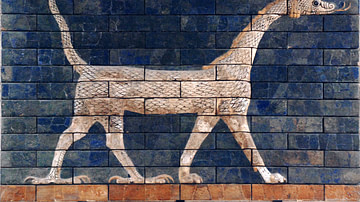
Definition
Marduk
Marduk was the patron god of Babylon who presided over justice, compassion, healing, regeneration, magic, and fairness, although he is also sometimes referenced as a storm god and agricultural deity. His temple, the famous ziggurat described...
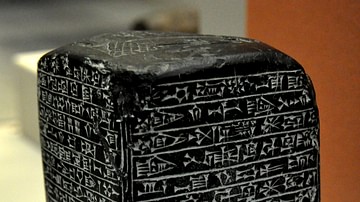
Article
The Marduk Prophecy
The Marduk Prophecy is an Assyrian document dating to between 713-612 BCE found in a building known as The House of the Exorcist adjacent to a temple in the city of Ashur. It relates the travels of the statue of the Babylonian god Marduk...
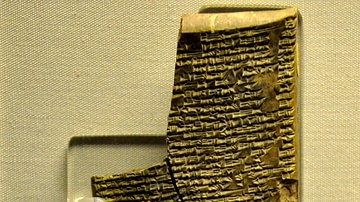
Article
Enuma Elish - The Babylonian Epic of Creation - Full Text
The Enuma Elish (also known as The Seven Tablets of Creation) is the Babylonian creation myth whose title is derived from the opening lines of the piece, "When on High". The myth tells the story of the great god Marduk's victory over the...
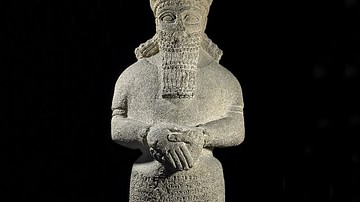
Definition
Nabu
Nabu (sometimes known as Tutu) is the Babylonian god of wisdom, learning, prophecy, scribes, and writing and was also responsible for the abundant harvest and all growing things. His name means "the Announcer" which refers to his prophetic...
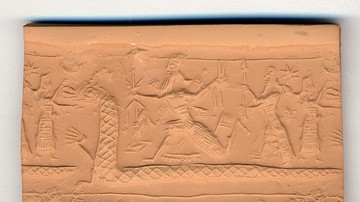
Definition
Tiamat
Tiamat is the Mesopotamian goddess associated with primordial chaos and the salt sea best known from the Babylonian epic Enuma Elish. In all versions of the myth, following the original, Tiamat always symbolizes the forces of chaos, which...
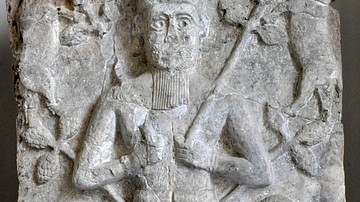
Article
The Mesopotamian Pantheon
The gods of the Mesopotamian region were not uniform in name, power, provenance or status in the hierarchy. Mesopotamian culture varied from region to region and, because of this, Marduk should not be regarded as King of the Gods in the same...
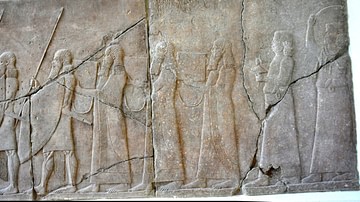
Article
Festivals in Ancient Mesopotamia
Festivals in ancient Mesopotamia honored the patron deity of a city-state or the primary god of the city that controlled a region or empire. The earliest, the Akitu festival, was first observed in Sumer in the Early Dynastic Period (2900-2334...
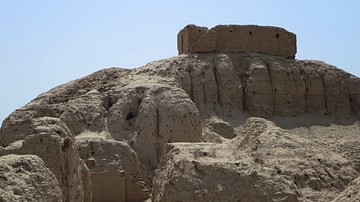
Definition
Enlil
Enlil (also known as Ellil and Nunamnir) was the Sumerian god of the air in the Mesopotamian Pantheon but was more powerful than any other elemental deities and eventually was worshiped as King of the Gods. He is featured in a number of important...

Definition
Assur
Assur (also Ashur, Anshar) is the god of the Assyrians who was elevated from a local deity of the city of Ashur to the supreme god of the Assyrian pantheon. His attributes were drawn from earlier Sumerian and Babylonian deities and so he...
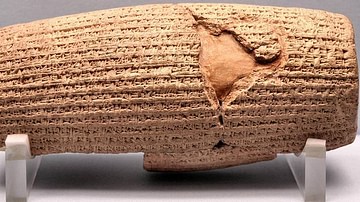
Article
The Cyrus Cylinder
The Cyrus Cylinder is a document issued by Cyrus the Great, consisting of a cylinder of clay inscribed in Akkadian cuneiform script. The cylinder was created in 539 BCE, surely by order of Cyrus the Great, when he took Babylon from Nabonidus...